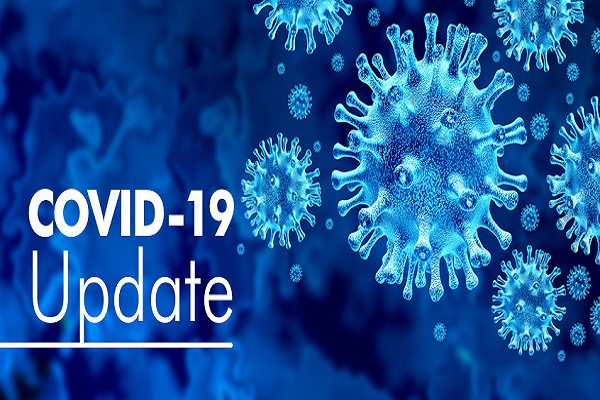
Coronavirus, a new virus called the severe acute respiratory syndrome (SARS-CoV-2) is recognized as the cause of disease all over the world which started from China in late 2019 and now known as Coronavirus 2019(COVID-19).
What is Coronavirus?

Coronaviruses are single-stranded RNA viruses, approximately a hundred and twenty nanometres in diameter. They’re prone to mutation and recombination. The virus that causes COVID-19 is thought to have originated in bats and then unfold to snakes and pangolins and hence to humans, perhaps with the aid of contamination of meat from wild animals. There are approximately forty specific varieties of Corona Viruses recognized to date by scientists and that they particularly infect human and non-human mammals and birds.
What are the Symptoms of the Corona Virus (COVID-19)?
COVID-19 symptoms can be very mild to severe it offers varied clinical capabilities, starting from asymptomatic to ARDS.

The maximum common Signs and Symptoms at Onset of COVID-19 consists of:
- Fever
- Cough
- Shortness of breath
But 80% of infections are moderate (no pneumonia manifestations) or asymptomatic, although nonetheless contagious. If the virus is not causing serious signs, humans are less in all likelihood to recognize it.
How Corona Viruses spread?
- The virus spreads from individual to individual via small droplets from the nose or mouth through coughing or sneezing.
- Any person living in or has travelled within the 14 days period to a place where there’s network transmission of severe acute breathing syndrome Coronavirus 2 (SARS-CoV-2). Any person has had *close contact with a suspected case of COVID-19 In the earlier 14 days, inclusive through work in medical or health care professionals.
* NOTE: Close contact includes being within approximately six feet (about two meters) of a patient for a prolonged period of time while not wearing personal protective equipment (PPE) or having direct contact with infectious secretions while not wearing PPE.
What are the preventive measures for COVID-19?
It is crucial to practice good hygiene, respiratory etiquette and social distancing to avoid the spread of the Corona Virus. Here are some important measures to be followed that can help protect you and your family and others from this pandemic disease which is spreading globally at a faster pace:
- To reduce the risk of transmission in the community, individuals are advised to wash hands diligently, practice respiratory hygiene (e.g., cover their cough), and avoid crowds and close contact with ill individuals.
- Individuals are advised to wear a mask if you are coughing or sneezing. Masks are effective only when used in combination with regular washing hands with alcohol-based hand rub or soap and water.
- Social distancing is advised, particularly in locations that have community transmissions. Staying at least six feet away from other people reduces your chances of getting infected from COVID-19.
What are the treatments available for COVID-19?
No specific Treatment for COVID-19 is currently available. So far there are no specific medicines or antiviral medicines to COVID-19. Care for COVID-19 includes supportive management of symptoms and complications including pneumonia, acute respiratory distress syndrome and advanced organ support if needed.
How long will the pandemic disease last in the world?
It’s uncertain to date. It depends on a range of factors like how long people will continue to isolate themselves i.e. self –Quarantine or avoid public gatherings.
If we succeed in containing or reducing the impact of the community transmission stage of this infection, we will win the situation. This is the time for society to realize it’s responsibilities as no government will be able to tackle this situation alone.
What Does the CDC Recommend?
- The CDC (Centers for Disease Control) recommends that patients with suspected or confirmed COVID-19 be placed in a single-occupancy room with a closed door and dedicated bathroom.
- The patient should wear a face mask if being transported out of the room.
- An airborne infection isolation room (ie, a single-patient negative pressure room) should be reserved for patients undergoing aerosol-generating procedures. However, patients with suspected or confirmed COVID-19 should not be kept in a positive-pressure room.
(Dr Manisha Mendiratta, Senior Consultant – Centre for Respiratory Disease & Sleep Disorder, Sarvodaya Hospital Research Centre, Faridabad. Views expressed are a personal opinion.)
Be a part of Elets Collaborative Initiatives. Join Us for Upcoming Events and explore business opportunities. Like us on Facebook , connect with us on LinkedIn and follow us on Twitter , Instagram.












